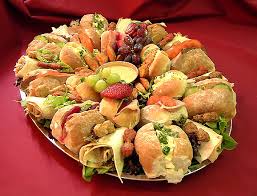 From Banting to Veganism – there are so many different types of dietary requirements out there – how on earth does one know what to cater for and where to draw the line when catering for large groups?
From Banting to Veganism – there are so many different types of dietary requirements out there – how on earth does one know what to cater for and where to draw the line when catering for large groups?
There are two main streams of dietary requirements – belief based diets and weight loss or health related diets.
When dealing with attendees, belief based diets are incredibly important, and need to be communicated to the event’s organisers in advance of the event to ensure that the food is ordered in from a specific caterer.
In South Africa, the two main belief based dietary requirements you will likely encounter are a Kosher and Halaal diet.
Kosher is observed by those that are strict followers of Judaism, and food needs to be prepared by a strictly Kashrut or Kosher chef. The food is covered and a blue and white sticker, declaring it strictly kosher, is placed on the covering. Please note that should food be touched someone who does not follow the religion it then cannot be eaten, so always serve the food with the covering still intact – the attendee will remove the covering themselves.
Should you be managing a client or company that you know followers Judaism, however are not strictly Kosher, always make sure to ensure that no pork items are served on the menu, out of respect.
Halaal diets are followed by strict devotees of Islam, and again food is prepared by an Islamic chef and should be served covered and unopened. Those that follow a Halaal diet also do not eat pork meat, and meat needs to be slaughtered and prepared by a strictly Islamic official.
Health related diets can range from Vegetarian (no meat) to Vegan (no meat and no animal products such as eggs, milk, cheese etc) to Pescetarian (who are vegetarian, but will eat fish) and even Fruitarian (fruits, nuts and seeds only.)
Lacto-ovo vegetarians will eat dairy and eggs, but no meat, while those who are Banting are following a strictly no-carb, no sugar diet for health reasons.
Diabetics may not have any sugar at all due to their high insulin levels in their bodies, and sugar is found in many food items today, so food needs to be prepared separately. You may also receive requests for lactose intolerant attendees (no dairy whatsoever) or low sugar
Most menus should cater to a vegetarian option, as followers of Hinduism will not eat meat either. Make sure vegetarian options are labelled as such, and any Kosher or Halaal foods are served on a separate table if you are having a buffet, and again clearly labelled.
If you are having a sit down meal – it is in your best interests to notify the kitchen of the guests that have ordered special meals and their placement on the table plan – so that foods can be delivered directly to the appropriate guest.
Basic menus should serve all sauces on the side, and have a good mix of red meat, and a chicken or fish option, as well as vegetables and salad. Dessert buffets will often have a fresh fruit or fruit salad option alongside the other options, and custard and cream are again served separately.
With all the different dietary requirements out there – how do you handle all of the requests? I always insist that guests must notify us of their dietary requirements well in advance, but be prepared for those that may forget. If it is possible, most catering kitchens will assist with ingredients they have on hand to prepare something special last minute, but it cannot be expected. Chefs in large hotels are prepared for these sorts of requests and often have something on hand to offer.
I have also found a lot of people on strict diets bring their own meals along, and this is completely acceptable and understood.




